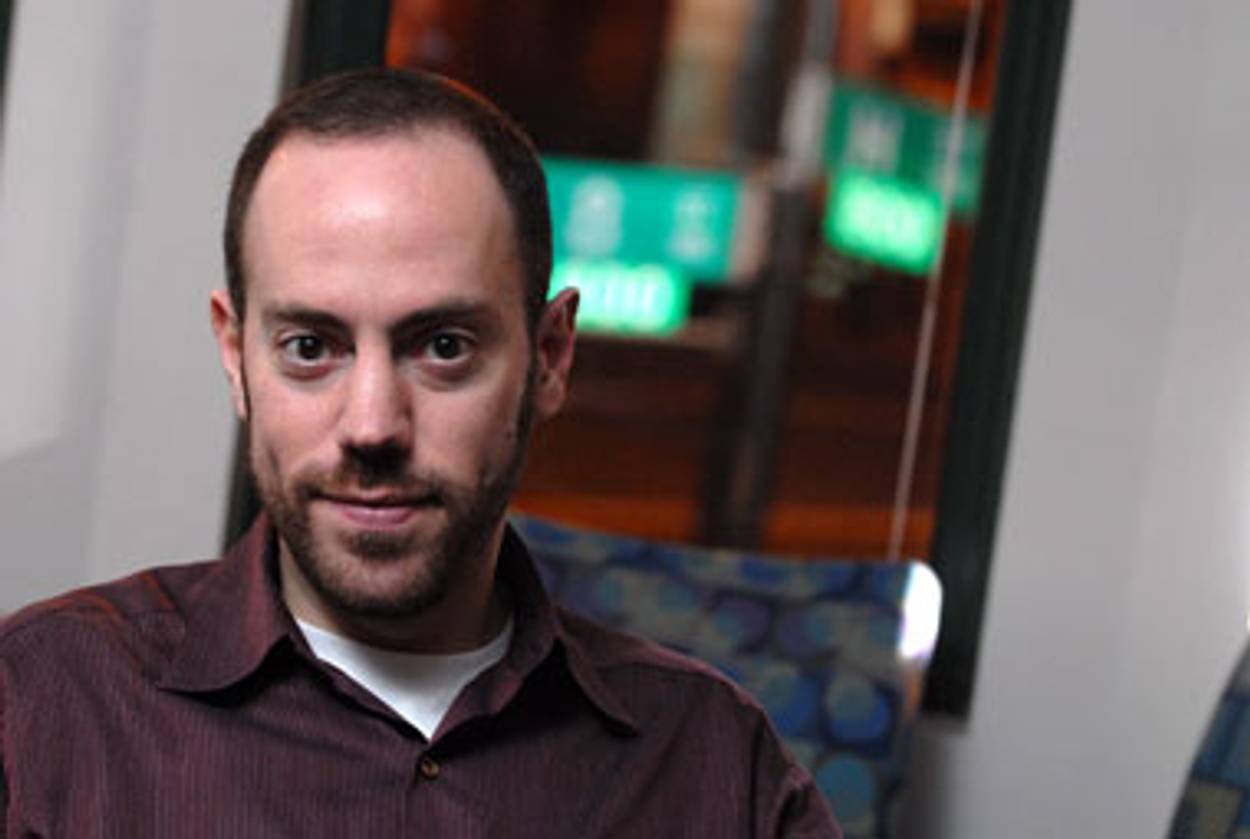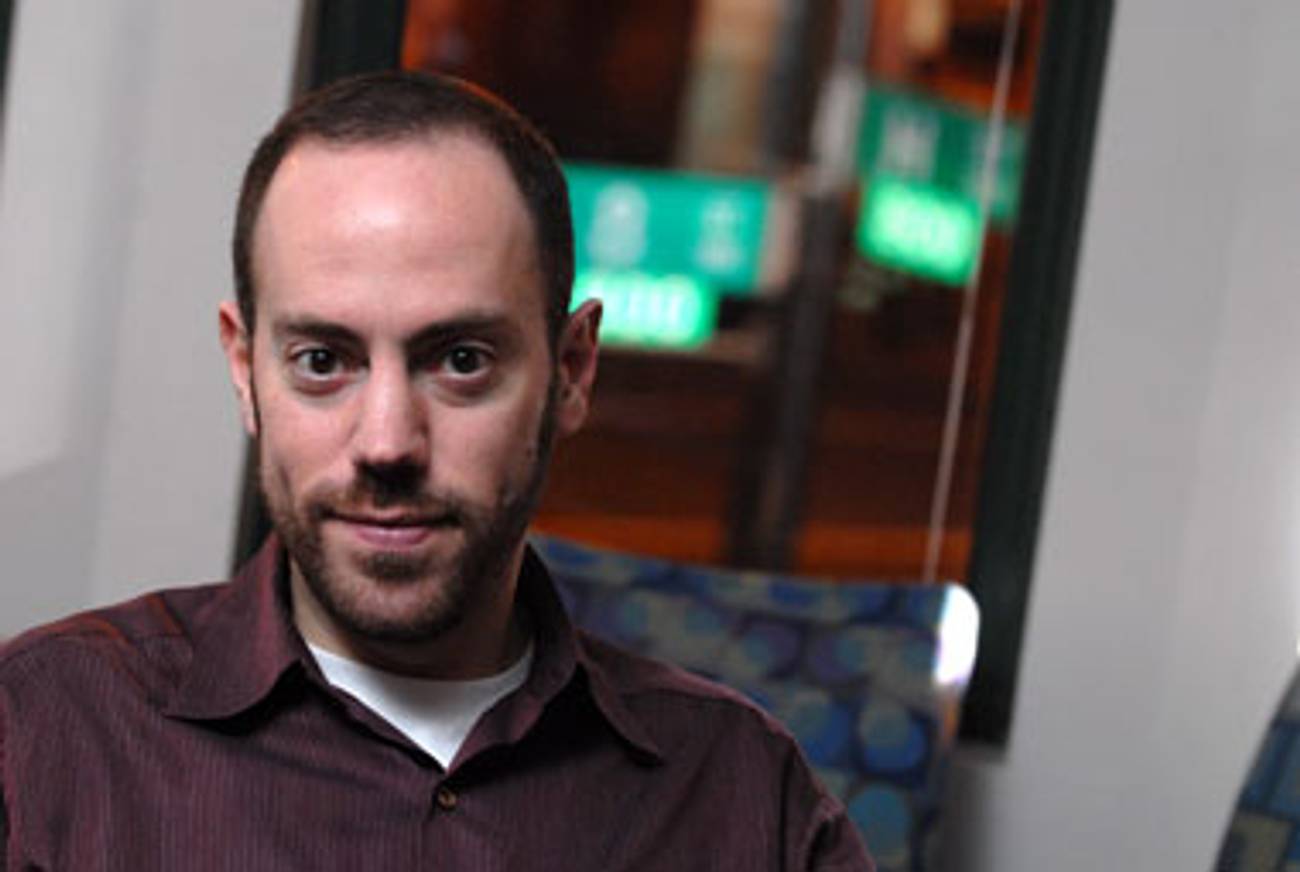Israel Second?
New National Jewish Democratic Council president David Harris must lead the group in the age of Obama




In late July, when the White House announced the recipients of the annual Presidential Medal of Freedom, staffers at the National Jewish Democratic Council posted a bland little blog item on their website noting that two Jews—slain gay-rights activist Harvey Milk and Nancy Goodman Brinker, founder of the Susan G. Komen breast cancer foundation—were among the recipients. Meanwhile, the right-wing Jewish blogosphere began to buzz over another of the award winners: Mary Robinson, Ireland’s first female president, long a target of conservative ire over her perceived failure to combat anti-Israel rhetoric at a U.N. conference on racism in 2001.
Within days, Jewish Democrats, including New York Congressman Eliot Engel, had joined groups like AIPAC and the Anti-Defamation League in criticizing President Barack Obama for Robinson’s selection. At the same time, Jewish activists on the left—including, earlier this week, a coalition of Israeli human rights groups—have spoken up on Robinson’s behalf. The NJDC, meanwhile, has remained silent on the issue; while its leaders may have privately chastised the administration for its PR screw-up, the organization hasn’t made any public comment, focusing instead on attacking Republican Jewish leaders for failing to condemn the use of Nazi imagery in partisan broadsides against Obama’s health care plans.
The episode underscores the tricky situation of the NJDC—a 30,000-member organization founded with the dual mission of keeping Jewish voters loyal to the Democratic Party and keeping the party, as it were, “good for the Jews”—currently finds itself in. For the first time since 1994, the Democratic Party controls both the executive and legislative branches, and for the first time in a decade, no one seems particularly concerned about a wholesale defection of Jewish voters—78 percent of whom voted for Obama—to the Republican Party. But the spread of opinion on Israel among Jewish Democrats appears to be wider than at any time in recent memory, with hawks expressing anxiety about the perceived rift between the United States and Israel resulting from the Obama Administration’s willingness to pressure Benjamin Netanyahu, while the increasingly organized and vocal American Jewish left cheers Obama precisely for pressuring the prime minister. So while the NJDC has a unique claim to speak for the vast majority of American Jews, it’s not clear what American Jews want to say on the one issue that brings them all together as a single interest group.
The problem, acknowledged by the organization’s newly appointed president, David Harris, is how to maintain “a big tent” on Israel policy. “Our members, and various leaders of ours, occupy various different places on the Israel policy spectrum,” Harris, the 40-year-old former head of the Israel on Campus Coalition who recently became the NJDC’s president, told Tablet. (This Harris not to be confused with the David A. Harris who is currently executive director of the American Jewish Committee).
During last year’s election, many Jews, like all American voters, found themselves preoccupied with a range of issues—the economy, health care, the war in Iraq—that had nothing to do with the Jewish state. For the NJDC, those issues are easy: Jewish Democrats are fairly uniform in their support for social programs, abortion rights, and the separation of church and state, whatever their views on how to achieve Middle East peace. But those issues are handled by a wide array of organizations; what Jewish voters depend specifically on Jewish organizations to do is articulate their views on Israel—which means that the fissions among Democrats that erupted after the Gaza war created a particular challenge for the NJDC.
“It’s a constant debate within the NJDC—what issues should they play on, and where does Israel fit,” said Steve Rabinowitz, a Democratic strategist and NJDC board member. Both Ira Forman, the NJDC’s longtime executive director (now CEO), and Harris said that, while they’re still engaged in selling their constituents on, for example, Obama’s health care policy—just this week, they launched a program to sign rabbis up to advocate for the president—their top agenda items are Iran and Israel, and their main task is to sell Jewish Democrats on Obama’s plans for the Middle East, while reassuring their constituents that the White House hears their concerns.
Publicly, Jewish leaders say they think the NJDC has done a “great job” at navigating the various constituencies among Jewish Democrats. Privately, though, political observers say they don’t envy the task facing the two men. “They are in a very awkward position—I wouldn’t want to be them,” said one left-leaning Jewish leader.
“It matters what you do when the chips are down,” echoed Matt Brooks, executive director of the NJDC’s opposite, the Republican Jewish Coalition, which broke publicly with the first President George H.W. Bush in 1991 over his failure to guarantee loans to Israel. “Will the NJDC continue to be public supporters of an administration even when large numbers of Jews feel they have acted in a way that isn’t appropriate? I don’t relish their position.”
Both Harris and Forman are quick to reject the idea that the Obama administration is any less committed to protecting Israel than previous administrations. “This is a very pro-Israel administration and will continue to be,” Forman said. Both men said the NJDC has nonetheless established for itself clear red lines that would prompt a public split with the White House; for example, a willingness to negotiate with Hamas—something that might be tolerated by some at the far left—would prompt a swift public outcry, Harris said. But outside observers pointed out that, if the issue is ensuring that constituents see their concerns are being addressed, silence—especially in the current blog-powered political environment—threatens irrelevance.
“Look, what I would say to Ira and David is that they should be giving the same mantra as the White House,” said Tom Dine, a former AIPAC executive director who is a longtime observer of Jewish politics. “If you’re stuck in the middle, you’re not leading.”
The NJDC was established in 1990, partly in response to concerns that emerged during the 1988 Democratic primaries over the ascendance of Jesse Jackson, widely vilified among Jews both for his friendship with Nation of Islam leader Louis Farrakhan and his unforgettable description, during his 1984 presidential campaign, of New York as “Hymietown.” But as much as Jewish Democratic leaders felt the need to speak to the party with a single voice, they were also intent on re-establishing grassroots links to Jewish voters who, after Jimmy Carter’s awkward and aloof relationship with Israel, felt the party had “walked away” from their interests, said Steve Gutow, the NJDC’s first executive director, who now heads the Jewish Council for Public Affairs.
During the Bush years, the focus shifted to keeping Jews from straying to the Republican side—drawn not just by the ascent of the Republican Jewish Coalition, but by the adoption of Israel as a cause by the religious right within the Republican party. “The nervousness was that the allure of power, and the perception of Bush as a best friend of Israel, would draw Jews away, and it became more of a focal point,” Gutow said. “There was a pivot towards the idea of keeping Jews in the party.” But at the same time, a new crop of well-funded, non-parochial Democratic organizations were emerging—MoveOn.org, Democracy for America, and the Obama campaign itself—with the express purpose of winning back swing votes across the board.
In response, NJDC could decide to get out of Israel policy and leave it to the professionals—that is, to issue-focused groups like AIPAC and J Street. But Forman and Harris both said they have no intention of doing that. Behind the scenes, they said, they are working assiduously to make sure the concerns of the Jewish community are being heard. “Part of the strength of being a party member organization is that you’re considered a friend,” Forman said. “Friends speak to each other in the background.” On Israel, Harris added, “When we speak to Democratic officeholders, we model and communicate a consensus, big tent message.” That message, he said, includes the “importance of Israel’s security, continuing foreign aid, the importance of helping to arrive at a secure and stable peace settlement, hopefully arriving at a two-state solution, knowing it’s both in Israel’s long-term security interests as well as America’s.” Also in the mix, he said, is encouraging the White House to schedule Obama for a trip to Israel—something that may have to wait until after the health care plan has been voted on—though both he and Forman noted that Administration officials at all levels have regularly been traveling back and forth for meetings with their Israeli counterparts, as has been the case in most administrations.
But publicly, when it comes to speaking to their constituents, their role has been much vaguer than Israel-focused lobby groups. The purpose of the NJDC, Harris said, was not to “create a safe space” for Jewish Democrats to work out their differences on Israel. The organization, which takes politicians on tours to Israel, has not, both men said, expended much energy engaging the group Democrats Abroad, for example, to cultivate Israeli public opinion in Obama’s favor, and, by extension, to alleviate the concerns of American Jews about the emergence of a political gulf between the two communities. In other words, they can do more. “They have to be the people who explain that there’s room in the Democratic Party for J Street Jews and AIPAC Jews,” Rabinowitz said. “And the AIPAC Democrats and the J Street Democrats need to be okay with that, and not resent the other. “
Allison Hoffman is a senior editor at Tablet Magazine. Her Twitter feed is @allisont_dc.
Allison Hoffman is a senior editor at Tablet Magazine. Her Twitter feed is @allisont_dc.